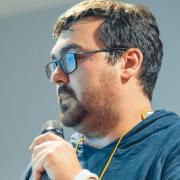
Dmitry Vasiliev
PostgresPro
15:00
04 February
45 min
PostgreSQL Scalability
The talk describes performance benchmarking results of PostgreSQL on modern Hi-End servers. The main attention was paid to the locks for shared data access and associated bottlenecks. The testing propose was to test the linear read scalability limits with an increase of cores number allocated for PostgreSQL. Testing was performed for different postgres versions (9.4, 9.5, 9.6) to check new features designed to increase performance on multiprocessing architectures.